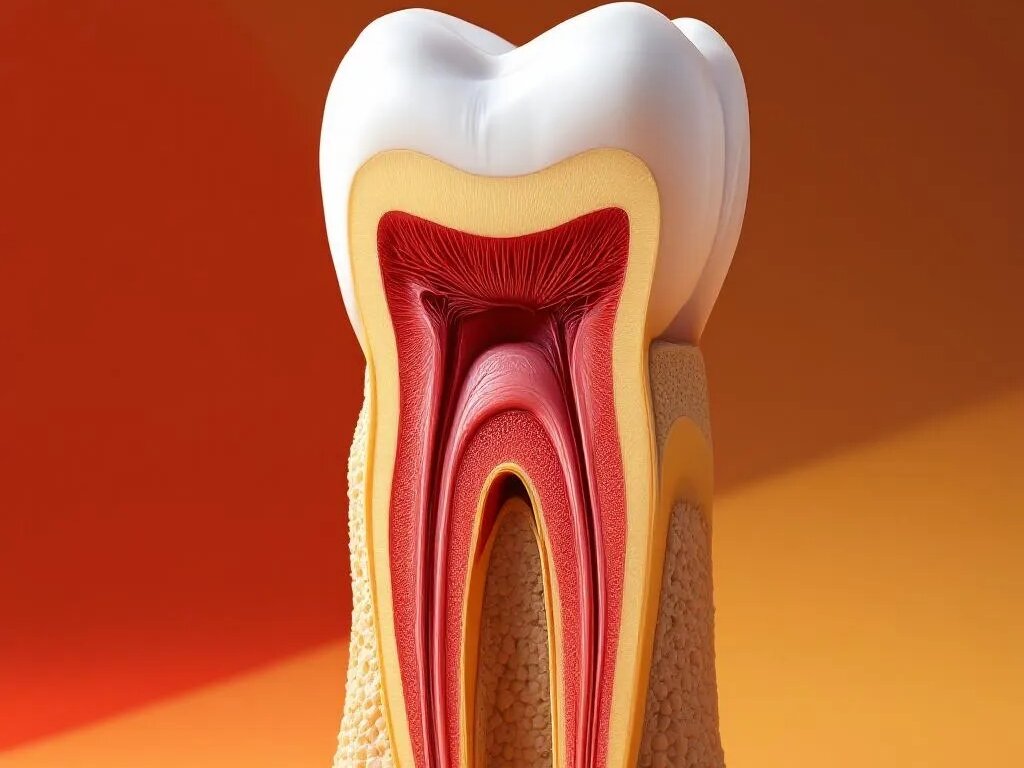
Severe toothache in the middle of your sleep or realize an abscess, you might have a root canal infection.
Here is everything you need to know about root canal treatment and root canal infection.
Why is Root Canal Treatment Needed?
When the pulp has been damaged by a bacterial infection, it can be detected with dental X-rays. Then, a root canal treatment is required. There is an urgent need to intervene. If left untreated, the symptoms can get worse or the infection can spread to other teeth, the jaw, or even the brain and cause other health complications.
Recovering from Root Canal Treatment
When you are recovering from a root canal treatment, you have to take care of it. During the treatment, you should pay attention to not chewing hard foods like nuts, carrots, apples, and candy. Tooth sensitivity may continue for a while after root canal treatment. That is why you should avoid consuming very hot or cold drinks as well.
If you feel pain after the treatment, you can take some painkillers too. It is normal to feel pain after the treatment. However, if you still feel pain after taking painkillers or for a long time, you should consult your dentist immediately.
Also, you may have a fever after the root canal treatment. A mild fever for a day after the treatment is normal. Nevertheless, if you have had a high fever for a long period, you should see a dentist since the infection might be still present and need to be treated instantly.
What are Root Canal Infections?
Bacteria that reach the pulp tissue can cause an infection inside the tooth when a tooth is cracked or has a deep cavity. A root canal infection affects the pulp or inner root of the tooth. The pulp has blood vessels, nerves, and connective tissues.
That is why any damage to the pulp can cause complete damage to the tooth and its function. A root canal infection is a dental problem that should be treated immediately to prevent further complications.
What Causes Root Canal Infections?
The first thing that causes a root canal infection is an untreated cavity. When the cavity is not treated for several months, it is more likely to turn into a root canal infection. If the bacteria that causes the tooth cavity is not treated, it can spread to the root of the tooth eventually. In some cases, the infection may spread to the other teeth as well. To prevent that, you should pay attention to your oral hygiene and what you consume.
Dental fillings can be another cause of a root canal infection. When a dental filling is old or is not applied properly, the bacteria can affect the tooth easily. Old dental fillings can wear out or crack over time. For this reason, you may need to have them checked to prevent potential dental issues, including a root canal infection.
Similarly, infection under the crown can cause root canal infection. When a dental crown is damaged, bacteria can enter underneath the crown. Thus, it reaches the root of your tooth and starts to damage the nerves and the pulp.
Poor oral hygiene can cause root canal infections as well. Not brushing and flossing your teeth regularly can cause bacteria to damage your teeth. In addition, untreated dental issues like tooth decay and gum diseases can make the infection spread to the root of your tooth.
The Symptoms of a Root Canal Infection
There are some signs of infection after root canal.
The first symptom of a root canal infection is pain and sensitivity. You may feel pain especially after chewing and biting or feel sensitive to hot and cold drinks. You may even experience discomfort when opening your mouth and speaking.
Another symptom of a root canal infection is fever. Due to the root canal infection, you may have a high fever.
The other symptom is swelling. In particular, swelling that lasts for a long time can be a sign of a root canal infection. Swelling and pain are felt around the tooth.
In addition, bad breath can be another symptom of a root canal infection. The bacteria that cause this infection may lead patients to have bad breath even though they brush or floss their teeth properly.
A dental abscess is another symptom of a root canal infection. A dental abscess is a collection of pus that can occur inside the teeth, the gums, or the bone that holds the teeth. Due to a dental abscess, you may feel pain or notice redness on the gum or even your face. If left untreated, the symptoms of jaw infection after a root canal infection due to a dental abscess may occur.
If you have these symptoms, you should schedule a dentist appointment. The sooner you visit the dentist, the better since you will prevent these symptoms from worsening. Besides, some symptoms like fever and a dental abscess need to be treated immediately since they can be life-threatening.
How are Root Canal Infections Treated?
When the nerve of a tooth has been damaged or infected, a root canal treatment is required. There are ways to treat root canal infections.
The first thing to do to treat root canal infection is to remove the bacteria. After removing the bacteria, the root canal is filled and the tooth is sealed with a crown or filling. Thanks to local anesthesia, you will not feel any pain or discomfort during the treatment.
Another way to treat root canal infection is tooth extraction. Sometimes tooth extraction is needed when the infection is severe and the tooth cannot be saved. But, don’t worry. With an implant, it is possible to replace an extracted tooth.
Sometimes antibiotics can be used during the treatment process as well. Antibiotics cannot help to treat an infection completely but it helps to prevent the infection from spreading to other teeth.
You can reach our previous article from https://smileteamturkey.com/blog/reasons-and-treatment-of-enamel-erosion/
